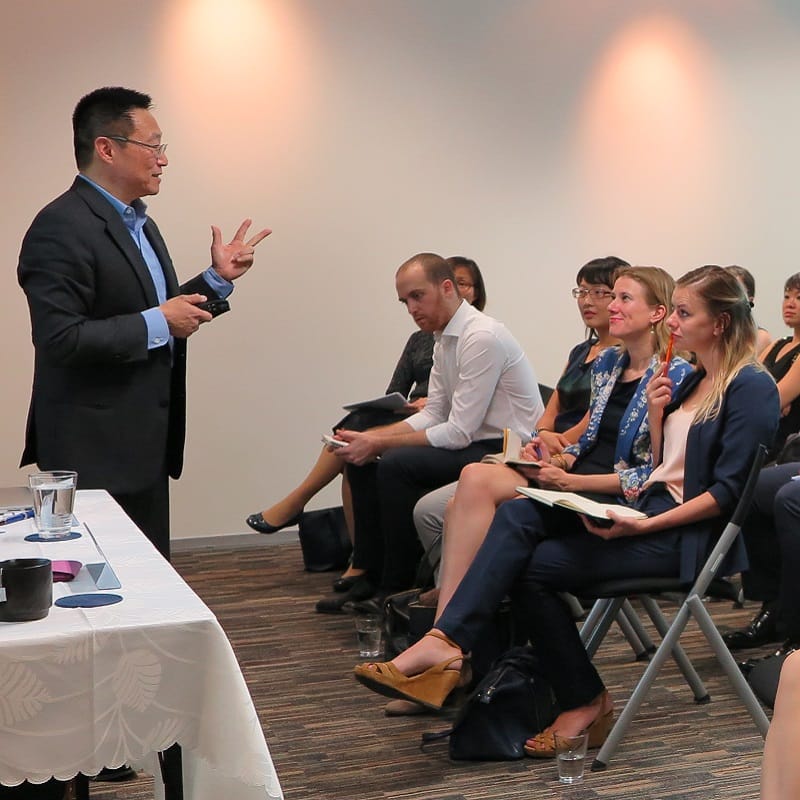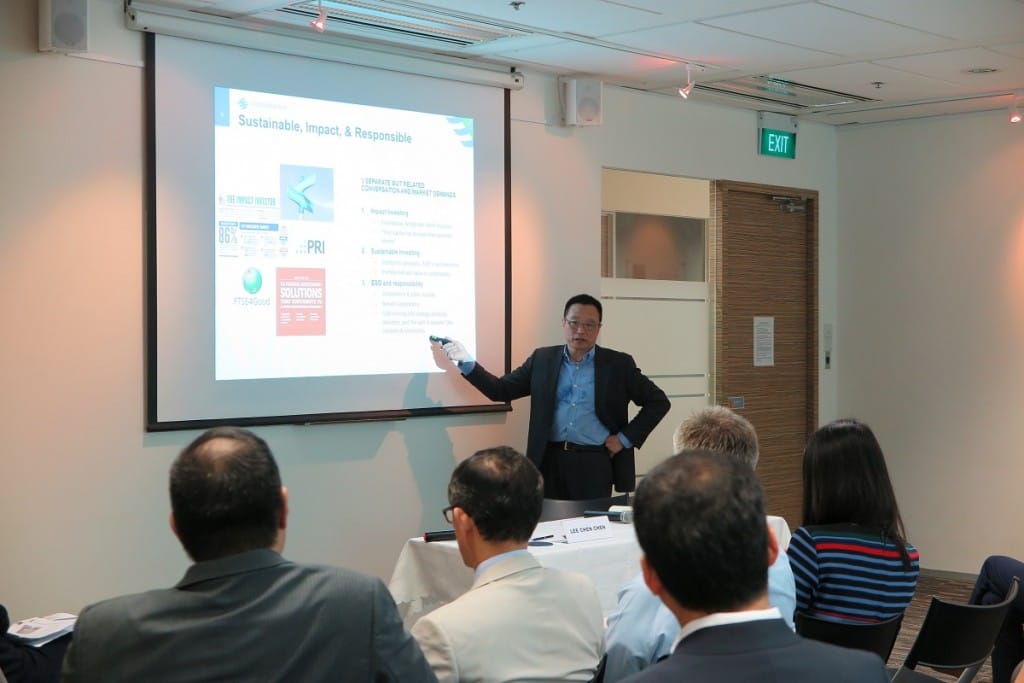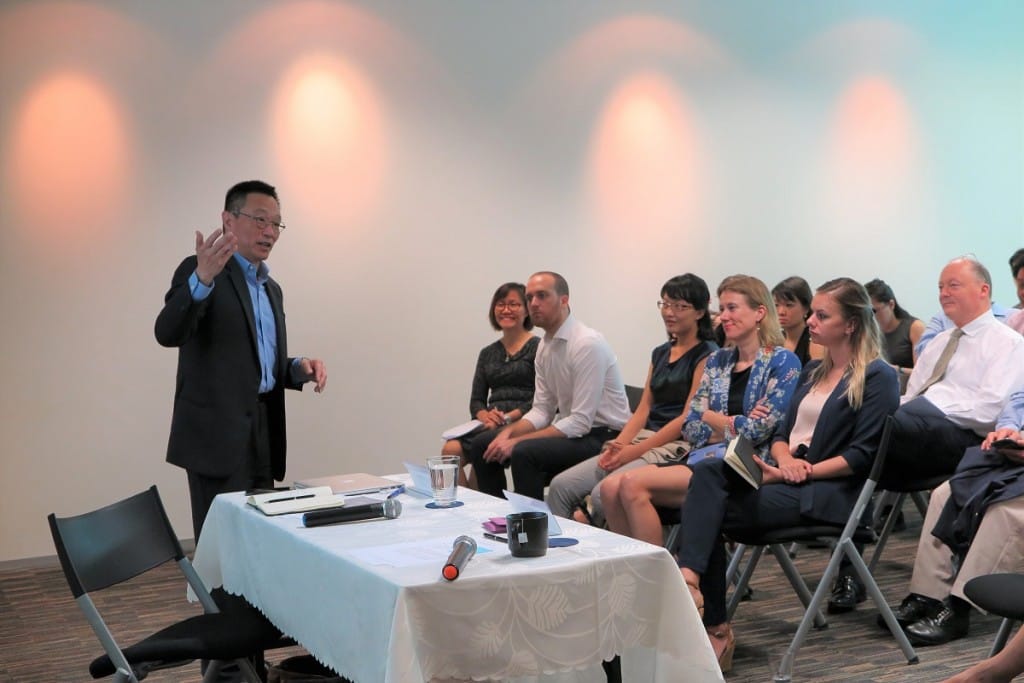For a decade or so, responsibility in the investment world is perceived as a “dirty word” as it was associated with low market returns. But this field is dramatically changing, and impact investing has now become the vocabulary word of foundations and high net worth individuals. What is impact investing? What are its drivers, challenges and outlook?
To answer these questions, we hosted a breakfast talk titled “Sustainable and Impact Investing – A Strategy for Positive Change and Financial Returns” on 6 June 2017 with Professor Dave Chen, Adjunct Professor of Finance and Program Director of Impact Investing at Kellogg School of Management (Northwestern University). He is also a co-founder and principal of Equilibrium Capital Group, an impact-investment firm that aims to generate returns while addressing some of the world’s most pressing societal and environmental issues. The session was moderated by SIIA Director of Policy Programmes, Ms Lee Chen Chen. Here are some highlights from the discussion. More photos are available on our Facebook page.
What is impact investing?
Impact investing broadly refers to investments with the intention to generate a measurable and beneficial social or environmental impact alongside a financial return. When impact investing started around 7-8 years ago, it was narrowly focused on social enterprises and microfinance. Today, there is a recognition that capital markets can create an impact, and this is seen as a strategy rather than an asset class or asset type.
In fact, impact investing is not new as we are essentially using the same instruments and learning to apply them for positive environmental and social impact. As with investing in general, there is still a need to think about valuing risks and returns. On the risk side, the ability to identify risks and price them appropriately will be crucial to creating value for beneficiaries. There is also now a growing demand for metrics to measure both financial and non-financial returns.
Drivers of Impact Investing
The rise in impact investing can be attributed to a few factors. A case in point is government policy. In the 2015 US Department of Labour Employee Retirement Income Security Act (ERISA) clarification, it was acknowledged that environmental and social factors could affect long-term obligation and should be seen as part of fiduciary duty.
In addition, high net-worth individuals, women and millennials are increasingly profiling a longer timeline for their returns. This could be due to personal values and beliefs pertaining to social and environmental issues.
The engineering of better financial tools in response to social and environmental concerns have also led to greater uptake of renewable energy among others.
Challenges of impact investing
While impact investing is growing rapidly on a global scale, some challenges remain. First, not all social and environmental impacts are easy to measure. Water and energy use tend to be more quantifiable than carbon. Moreover, there are multiple standards available in the market and switching from one reporting framework to another can entail significant costs in data collection.
Outlook of impact investing
Despite this, impact investing has potential to grow in Singapore. The country is home to experts and financial engineers and can tap on the innovative capacity in the region. As long as we can understand and quantify the benefits, capital markets can move very quickly and be an incredible instrument to cause an impact.
Original Event Synopsis:
The world today is threatened by global challenges such as climate change. To address these challenges, the contribution of the financial sector will become increasingly important. The shift to sustainable or green finance, in particular, often involves channeling capital towards environmentally and socially responsible initiatives. Yet, strategies and approaches vary, and quantifying the non-financial returns to such initiatives can prove challenging. How can the financial community, especially impact investors, play a constructive role?
Join us for this upcoming breakfast talk to hear from Prof. Dave Chen as he sheds light on how impact investors can create both positive impact and superior financial returns in the shift to a low-carbon economy.
Prof. Chen is Adjunct Professor of Finance and Program Director of Impact Investing at Kellogg School of Management (Northwestern University). He is also co-founder and principal of Equilibrium Capital Group, an impact-investment firm that aims to generate returns while addressing some of the world’s most pressing societal and environmental issues.
Event Details
Date: Tuesday, 6th June 2017
Time: 7:45am – 9:00am (Registration Reception starts at 7:45am; Talk begins at 8am)
Venue: Singapore Institute of International Affairs
60A Orchard Road #04-03 (Level 4M) Tower 1,
The Atrium @Orchard, International Involvement Hub,
Singapore 238890
*To register, kindly email fidelis.lee@www.siiaonline.org with your name, designation & organisation. As seats are limited, do register by 5 June 2017 to secure your seats.






